Making compost
Having a compost heap and making compost is becoming an increasingly popular DIY activity. Why? Well it just makes so much sense for all the eco reasons, but also in terms of being a practical solution for getting rid of all manner of organic waste. It is also one of the easiest DIY projects that you can possibly do because there’s certainly no need to have any practical skills, and you can be up and running in half an hour – especially if you opt for one of the purpose made compost bins such as the one shown below.
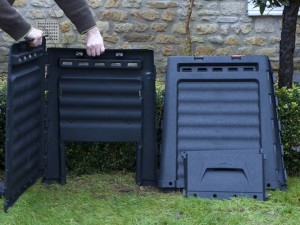 |
1. So you can build your own compost bin, or buy a readily available, purpose-made kit, as shown here. Choose a location where the compost bin will be directly situated on a soil base. |
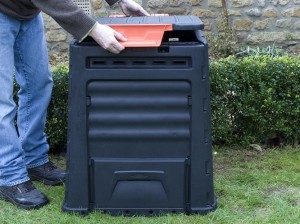 |
2. When constructing a compost bin, follow the manufacturer’s guidelines precisely to ensure that the various components are slotted correctly in place to create a stable unit. |
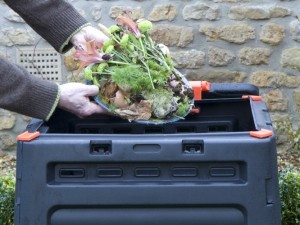 |
3. Vegetable peelings from your kitchen, tea bags and coffee grounds, young weeds without seeds and grass mowings work quickly as activators to get the compost started. |
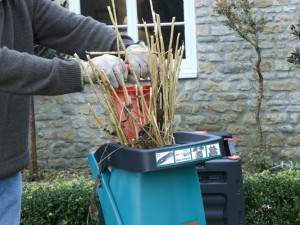 |
4. Tougher plant material is slower to rot but important for composition as it gives body to the compost and makes up the bulk. Woody items decay slowly so you can use a shredder before adding to the heap. |
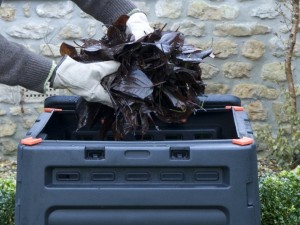 |
5. Compost can take a year or more to rot. The more air you can incorporate into the mix the faster the aerobic microbes will do their work and the quicker the compost will be made. |
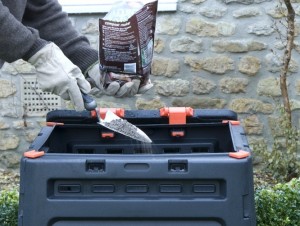 |
6. Compost accelerator stimulates micro organisms to speed up the process of decay. Add compost accelerator to the mix as directed by the manufacturer. |
Composting tips
- Remember that if you haven’t space for a compost bin, you’ll always find that your local council can help you dispose of this material in an environmentally friendly way.
- Items you can compost include grass and leaves, coffee grounds, tea leaves, hair, fruit and vegetable peelings, crushed eggshells, herbivore manure, flowers and woody cuttings, shredded paper (not glossy paper).
- Items you should not compost as they might attract pests or possibly contain diseases and toxicity include meat, fish, dairy products, glossy magazine paper, cat and dog manure, cat litter, and barbecue coals.
